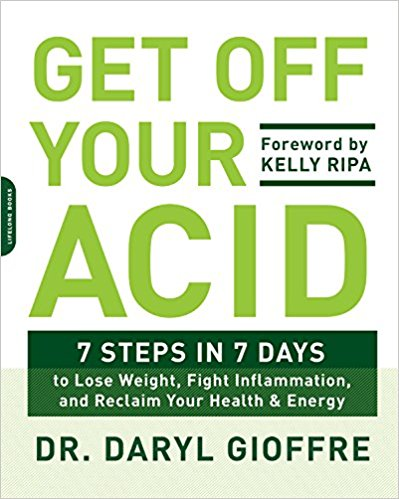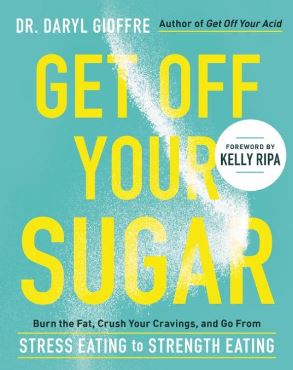Tell me if any of these scenarios have happened to you since the pandemic began…
-
You walk into a room and forget why you came in there.
- You open your phone only to have no idea what you were going to check.
-

- You meant to tell a friend something on your next FaceTime call, but then you completely forget once you see them.
- You feel distracted, tired, and anxious.
Only a few times every day, right?
These are all symptoms of brain fog, which is even more common under the stress of the pandemic. Brain fog is not a disease or diagnosable condition, but it affects adults of all ages. While it’s often associated with aging, 14% of adults in their 20s and 30s say they experience brain fog compared to a quarter of middle-age adults, so it really affects all ages, especially in times of stress.
It may be quite common, but that doesn’t mean it is normal! Or something you have to live with!
Here’s the good news about brain fog if you suffer from it… There are reasons you feel the way you do, and there are solutions to bring you back to the opposite of brain fog, which is feeling sharp, focused, clear-headed, motivated, and calm.
Today, we’ll explore what’s causing your symptoms and what you can do to lift the fog.
So what is brain fog exactly?
Tell me if any of these scenarios have happened to you since the pandemic began…
- Difficulty concentrating
- Fatigue or lack of energy
- Headaches
- Irritability
- Forgetfulness
- Anxiety
- Depression
- Confusion
There are 4 main contributors to brain fog. While stress might be making your symptoms worse at the moment, it’s possible 1 or 2 or even all 3 of the other contributors are adding to your difficulty concentrating. So let’s talk about each one, and what you can do to alleviate it.
Contributor 1: Hormonal Imbalance Associated with Aging
As we get older, some of the chemicals that are released within the body slow down, which can lead to all kinds of symptoms beyond brain fog like difficulty sleeping or feeling tired all the time, sensitivity to cold or getting overheated, unwanted hair growth or hair loss, and low libido.
Regardless of what symptoms you’re experiencing, the most important thing you can do to bring your hormones back into balance is eat more hormone friendly foods in place of the hormone disruptors that exacerbate the hormonal challenges of aging.
Eat more hormone-supporting foods:

- Avocados
- Coconut oil
- Organic, wild-caught Pacific or Spanish salmon
- Kale, spinach, collards, and other dark, leafy greens
- Cruciferous vegetables – broccoli, cauliflower, Brussels sprouts, and cabbage
- Red bell peppers
- Quinoa
- Sweet potatoes
- Chickpeas and other beans
- Flax seeds
Avoid hormone disruptors:
- Soy
- Sugar
- White potatoes
- Gluten
- Artificial sweeteners
- Dairy products
- Health, beauty, and home products with chemicals like parabens, phthalates, or BPA
Contributor 2: Slow Metabolism
If you have trouble losing unwanted extra pounds, in addition to brain fog, a slow metabolism is likely a culprit. You also may experience constipation and bloating, getting sick with common colds a lot, sensitivity to low temperatures, and general fatigue.
And here’s the problem, if you have a slow metabolism and you’ve tried to lose weight, your diet is probably making your symptoms worse! Most diets slow the metabolism because your body enters starvation mode.
So it’s important you end the starvation signals you’re sending to your cells. And the best way to do that is eating a nutrient-rich alkaline diet. These are also foods proven to help you lose weight, so you can load up as much as you want, without any deprivation.
Nutrient-dense foods to help speed up your metabolism:
- Spinach, kale, watercress, and other leafy greens (make these the bulk of your diet)
-

- Broccoli
- Beans
- Nuts
- Seeds
- Seaweed
- Garlic
- Cacao (unsweetened)
- Celery
- Avocado
- Herbs
- Tomatoes
The other thing to load up on is water. Quit the sports drinks, carbonated water, fruit juice, and soda. Instead, drink plenty of filtered water with a slice of lemon or lime in it.
Metabolism slowing foods:
These culprits fill your digestive tract with inflammation, making it harder to easily digest food, which leads to you feeling sluggish and bloated.
- Sugar – this includes sugar in supposedly “healthy” foods like yogurt, fruit juices, and granola bars
- Gluten and processed grains
- Trans fat foods like pastries, butter substitutes, and crackers
- Canola and vegetable oils
- Processed meals and snacks
- Artificial sweeteners
- Dairy products
Contributor 3: Stress

This is the big reason you’re feeling brain fog now like never before. Increased levels of anxiety and/or stress contribute to forgetfulness, lack of energy, mood changes, worries clouding your thoughts, and restlessness.
The best thing you can do to fight brain fog symptoms that come from increased stress is use a few mental hacks to fight it:
- Aim to get more quality sleep. Lack of sleep or restless sleep is associated with increased stress levels.
- Think of anxiety as a tool rather than a deficiency. Moderate levels of anxiety are associated with improved performance, so focus on keeping anxiety in check rather than getting rid of it completely.
- Use meditation, yoga, or other mindfulness strategies to reduce stress.
- Eat foods high in the mineral magnesium, which has been shown to decrease anxiety levels and aid restful sleep. These foods are great sources of magnesium:
- Dark, leafy greens
- Green vegetables
- Nuts
- Seeds
- Beans and chickpeas
- Wild-caught salmon and mackerel
- Raw cacao
Contributor 4: Deficiency in Omega-3 Fatty Acids
Did you know that your brain is made up of 60% fat?
The essential fatty acids on the omega spectrum are necessary to make the chemicals of the brain function properly, which keeps our moods stable and our minds thinking clearly.
Research shows that memory problems may be a sign of omega-3 deficiency. Knowing this, it’s no wonder why we, as Americans, suffer from such widespread memory problems and brain fog as we age.
The average American has 19 times more pro-inflammatory omega-6 fats than anti-inflammatory omega-3 fats in their system at any given time. In many cases, it’s even 25 times more omega-6, and I have even seen 50 times more!
That’s a recipe for brain inflammation, which often shows up as brain fog.
My recommendation is to increase your omega-3 supplement, as well as eat plenty of omega-3 foods. The research on fish oil supplementation is rock-solid, from helping children with ADHD right on through aging adults looking to keep their brains sharp.
Foods rich in Omega-3:
- Wild-caught Alaskan, Spanish or Pacific salmon
- Wild-caught Atlantic mackerel
- Walnuts
- Chia seeds
- Herring
- White fish
- Sardines
- Anchovies

If you are already taking a fish oil supplement, you’ve got to look closely at the details. In almost all brands, the ratio of EPA to DHA is poor (that is why krill oil is not good), and you would need to take on average 8 to 12 softgels to get the recommended 3,000mg that adults need to fight brain fog.
Our Alkamind Daily Omega-3 is the best quality Omega-3 supplement you will find, and here is why and how I can make such a bold statement when there are a million fish oil brands out there…
Daily Omega-3 is the ONLY one with the ideal 2:1 ratio of EPA to DHA in a highly concentrated form. So you can TAKE LESS and GET MORE benefit from it. Plus, it’s heavy metal free and guaranteed for potency and freshness, so no fishy taste.

Amazing product!
“I’ve noticed a huge difference in my mood and energy levels since I started taking these Omega 3’s!” –Nicole B. (Verified Buyer)
Subscribe & Save 15% today!
GET OFF YOUR ACID,
Dr. Daryl
 Skip to content
Skip to content









